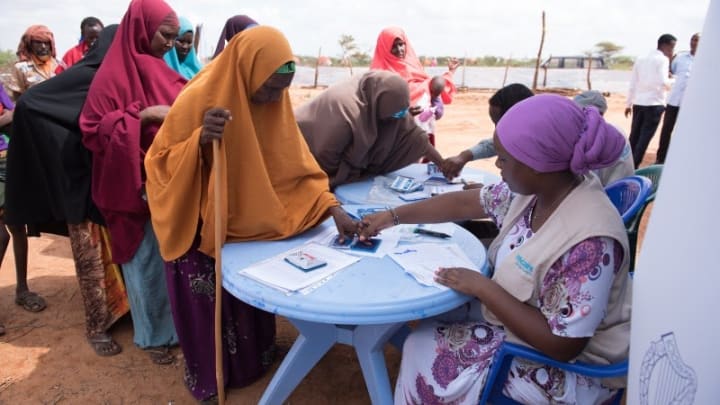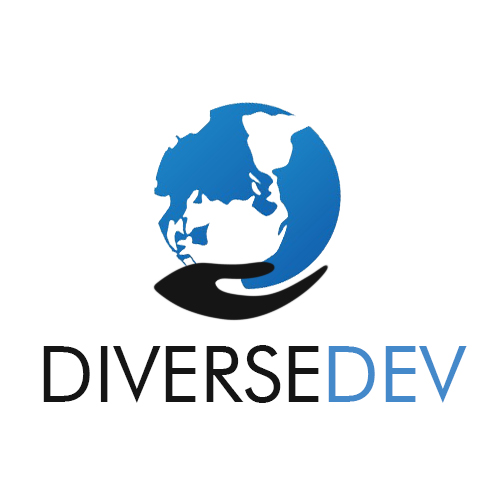
28 Dec The hustle — white saviors and hashtag activism
Originally Published in Devex.com
In this moment of pandemic and economic collapse, the United States is battling a period of social unrest, fueled by the collective rage and trauma of black people, black Americans, descendants of captive Africans brought to the colonies in 1619. The protests and the subsequent violence have laid bare a system held in place by the supreme confidence of white people and their place in this society and the world. We are now witnessing its implosion.
But there is a hustle going on in some aid organizations. From the moment that the violent recording by a bystander — of a white police officer murdering a black man named George Floyd, while effectuating an arrest — became public, the hustle went into effect.
Aid organizations began to post statements condemning police brutality and share hashtags of solidarity with protesters. And of course the inevitable parade of white experts began making media rounds because, let’s face it, the majority of the people deemed as “experts” in the sector are white; very few of these aid organizations have high-level black staff who could be trotted out to speak on behalf of the organization.
Black people working in the sector realized immediately that they had been had — again.
George Floyd was not the first victim of police brutality, but the global outpouring of support and solidarity mobilized local people to center black lives, calling for the dismantling of racist power structures and systems which have enabled police brutality against black bodies to be normalized.
This support has created a conundrum that amplifies the paradox facing the sector: white saviors ostensibly “doing good” in far-flung places in the world; expats, not immigrants away from home, in countries still nursing the wounds of systemic racism and colonialism.
Aid organizations remained true to form — holding on to the power as tightly as possible and putting out statements of solidarity and support without ever uttering words like racism, white supremacy, white privilege, equity, injustice, or black lives matter. The fight at this moment, like every aspect of black life, had to be sanitized and rendered acceptable through careful parsing of language enabling aid organizations to continue to play its dual role — that of white saviors abroad and patriotic champions of our democracy at home.
And without mentioning the entrenched racism that permeates the sector: from the dominance of white males in leadership roles to the unpaid but necessary internships that effectively exclude poor people, and certainly black people, aid organizations sought to shroud their complicity by extolling the virtues of our democracy and commitment to human rights in their public statements.
This should be a watershed moment for development professionals and international do-gooders.
Aid organizations consistently spout rhetoric about “working themselves out of a job,” and yet many of them have worked in some countries for over 50 years. Is that not failure?
Aid organizations can see need and desperation across the globe. But how many of them acknowledge need and desperation in North America and Europe, and are willing to call for a reimagining of a new system that will erode their power? Aid organizations consistently spout rhetoric about “working themselves out of a job,” and yet many of them have worked in some countries for over 50 years. Is that not failure? Ask the average Haitian citizen how development aid has helped their country 10 years after the devastating earthquake.
It is time to cede the power of rebuilding these vulnerable societies to the people whose lives will be impacted and changed — and you need black women to be front and center. International aid as a sector cannot shirk their responsibilities by pretending that they are unaware of what is at the core of this: anger, fueled by the murder of George Floyd.
Where to start? Begin by reflecting on the following:
Aid organizations: You are on notice. Your black staff can see your complicity and hear your hypocrisy loud and clear.
Aid organizations: If watching the video of the murder of George Floyd was painful or devastating, imagine what your black staff member might feel about his or her own family members who live under constant siege. They may be traumatized. They log on to Zoom meetings with professionalism and dedication to ensure that the work is done. Meet them where they are and focus on how centering equity and justice will improve your organization’s mission.
Aid organizations: Remove all the photographs of white executives with laughing black and brown children from your web sites and promotional materials. They are not props for you or your donors to ogle and to talk about your impact. Just imagine some random black man taking pictures of your children as they walk to school.
Aid organizations: Look around the office. Seek to label all those beautiful photographs of black and brown people that line the walls of every development organization operating in so-called developing countries. Tell the story of these people. Who are they? Where was the photo taken? Without identifying information these are just photographs of random people unable to live their lives without the white gaze and what we all accept as the face of a “beneficiary” of aid.
Aid organizations: Stop enabling the use of words such as “resilient” and “resilience” when referring to people who live every day with uncertainty. They are surviving. These words serve to perpetuate inequalities while telling vulnerable people how strong they are — and therefore changing absolutely nothing in their lives.
Aid organizations: During this period of unrest in the U.S., acknowledge that there are racial tensions and a complex history fueling these demonstrations when communicating with local staff and grantees in the countries in which we work. In fact, management teams should create opportunities for in-country staff to ask questions and to process what they are seeing on social media and on television about the murder of a black man in the streets of Minneapolis. It cannot be business as usual.
Aid organizations: No international organization should have all-white leadership. You lack the diversity of perspective that is necessary to work successfully in the service of black people. Elite degrees from schools in the U.S. and Europe does not give you my lived experience nor should it. When will you take stock of your board of directors? When will you take a hard look at the make-up of your leadership and management teams?
If your organization has decided to stand in solidarity with allies against racism then what actions will you take? Move beyond the hashtag engagement with black people.
